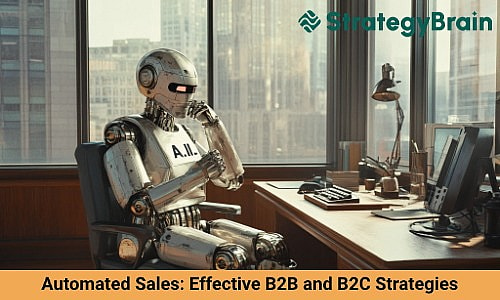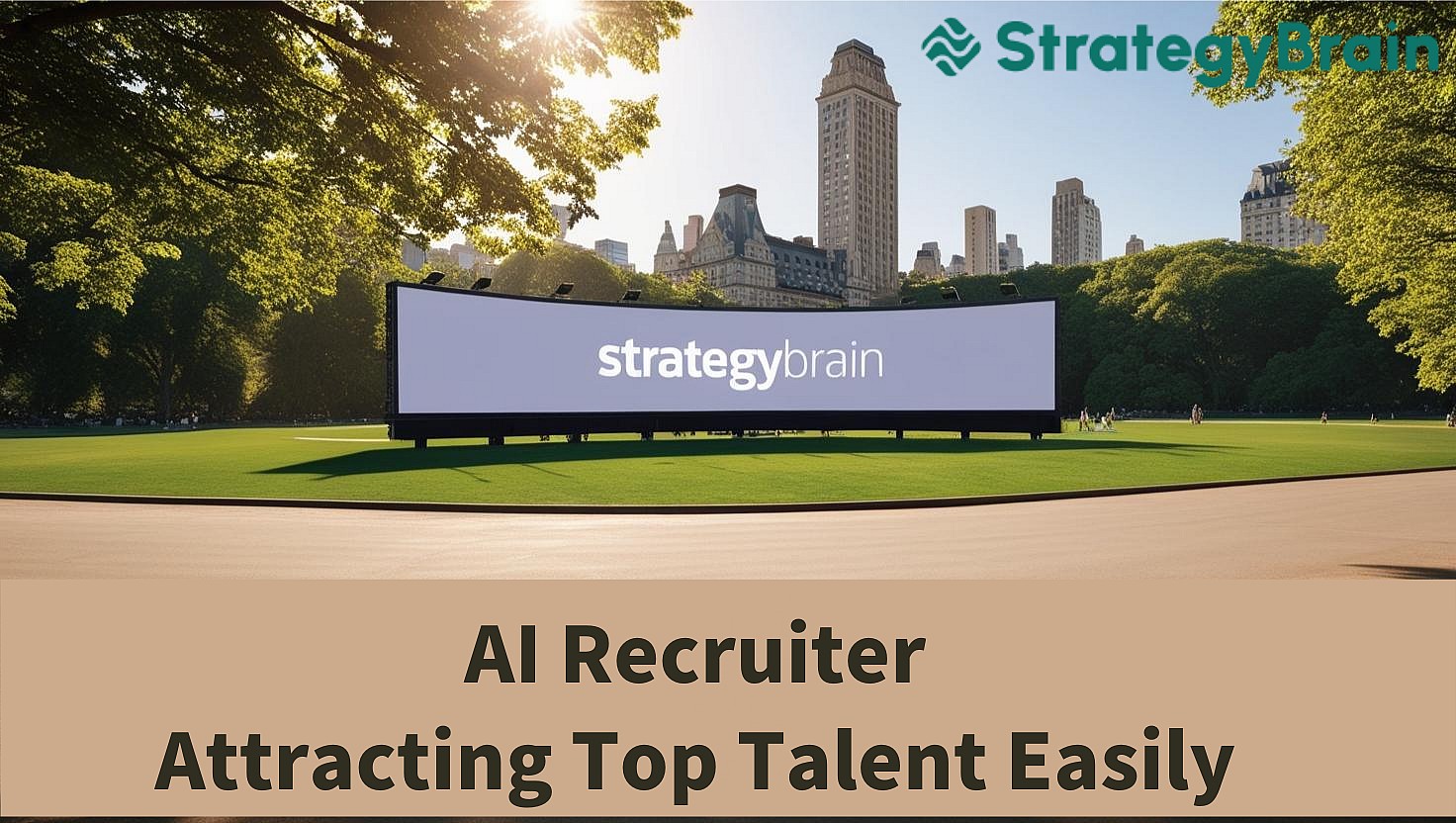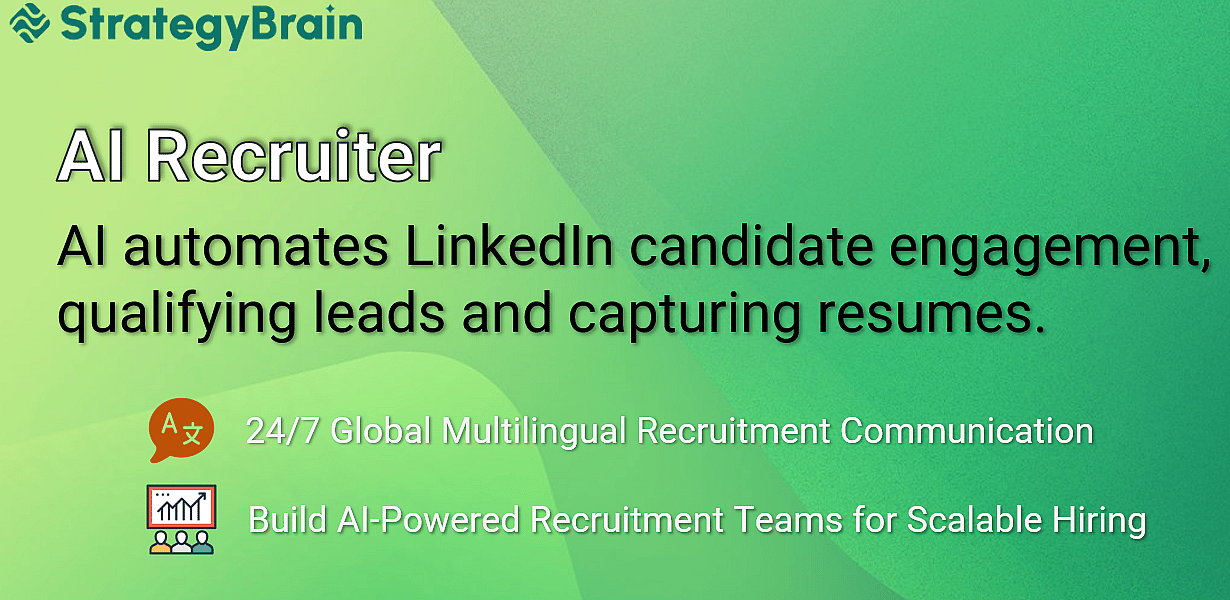
Automated Sales-In marketing, knowing the differences between B2B and B2C strategies is vital for success. This is crucial for both seasoned experts and newcomers. It helps in creating effective campaigns. This blog post will explore B2B and B2C marketing. It will explain how each works and why you need to tailor your approach to the audience.
Marketing is not a uniform task; it requires specificity and precision. B2B marketing, or business-to-business marketing, necessitates promoting products or services to other businesses. This approach requires building relationships with decision-makers. They value ROI and long-term gains. Companies like FiveCRM have thrived by offering tailored solutions. Their CRM software meets specific business needs.B2C Marketing: Engaging Individual Consumers
Conversely, B2C marketing, or business-to-consumer marketing, involves engaging directly with individual consumers. This method centers on emotional appeal and personal gratification. Amazon and Netflix are top brands. They show great B2C strategies. They create captivating experiences that connect with consumers.
Knowing the target audience is key to any marketing strategy. Both B2B and B2C approaches depend on knowing their audiences’ diverse traits and needs. The B2B Audience: Decision-Makers and Analysts.
B2B marketing targets decision-makers, like managers and executives. They are driven by logic and profit. These pros seek solutions that boost efficiency, scalability, and ROI. Effective B2B strategies prioritize data-backed, logical arguments. They also use research and demos to show value.The B2C Audience: Emotion-Driven and Impulsive Consumers
In contrast, the B2C target audience is individual consumers. They often rely on emotions and desires when buying. These consumers are swayed by social proof, branding, and instant gratification. B2C marketers excel by crafting stories and offers that resonate. This drives immediate action. Strategic Implications for Marketers
To navigate these differing landscapes, marketers must adapt their strategies. They must resonate with their audience’s mindset. By leveraging the unique traits of B2B and B2C audiences, marketers can craft personalized campaigns. This will meet their market segments’ demands. IIt will ensure growth and engagement. In marketing, specificity is key. We must develop impactful, tailored strategies. For B2B marketers, LinkedIn is key for lead generation and sales. Linkedin B2B Tools for automated client sourcing can connect decision-makers with solutions to improve operations. B2C strategies, in contrast, thrive on engaging stories that capture emotion-driven consumers. Automated systems let marketers quickly send personalized messages and offers. They can meet consumer demands this way. By knowing these nuances, they can craft campaigns that connect with their audience. This will foster growth and engagement.
For B2B audiences, honing in on the value proposition and ROI is key. Marketers should deliver clear, data-driven insights that appeal to analytical minds. Case studies and metrics show the benefits of their solutions. They help businesses prove their effectiveness.
Networking at industry events strengthens B2B marketing. It builds credibility and trust, leading to strong, successful partnerships.
In B2C, marketers need storytelling and personalization to grab attention. They should create stories that match people’s desires and emotions. This builds a brand image that fits the consumer’s lifestyle.
Using digital channels like social media and email can boost B2C outreach. They allow real-time interaction and engagement, connecting directly with consumers.
By merging these strategic elements, marketers in both B2B and B2C sectors can achieve optimal impact. A deep understanding of the audience drives campaign success. It requires knowing their behavior and preferences. Then, execute a good strategy.. It also builds long-term customer relationships.
Creating content for both B2B and B2C audiences needs a good understanding of their differences. B2B content, especially on LinkedIn, should focus on value and data. This appeals to professionals looking for efficiency and return on investment (ROI). LinkedIn’s Lead Generation tools make the sales process easier. They connect marketers with key decision-makers. Adding automated sourcing and communication can improve engagement. This approach offers solutions tailored to business needs. In B2C, emotional stories and personal experiences can captivate. They use creativity to drive instant connection and conversion. Customizing the content will meet the target market’s expectations. This will maximize their impact in both areas.Navigating the Sales Process
The sales process in B2B and B2C marketing differs significantly. B2B transactions involve longer sales cycles, often requiring buy-in from multiple decision-makers. This complexity necessitates relationship-building efforts and personalized communication.
In contrast, B2C sales cycles are typically shorter, driven by individual decision-making. Consumers are more influenced by reviews, recommendations, and personal experiences. The goal is to provide a quick and easy buying process. It should match consumers’ fast-paced lifestyles.
Effective customer relationship management is crucial for both B2B and B2C success. B2B relationships require ongoing engagement and support to nurture long-term partnerships. Building trust and rapport with key stakeholders is vital. It helps maintain steady business relationships.
In the B2C realm, customer relationships are built on immediacy and satisfaction. Brands must prioritize delivering exceptional service and responding promptly to customer inquiries. Loyalty programs and personalized interactions help foster brand loyalty and encourage repeat purchases.
Social media has become an indispensable tool for marketers. In B2B marketing, LinkedIn is crucial for building authority and connections. Sharing insights, hosting webinars, and leading discussions effectively reach business audiences.
For B2C marketing, social media is a key platform. It showcases products, shares stories, and engages consumers. Popular strategies include using visual content, collaborating with influencers, and running interactive campaigns. These methods enhance interactions and increase brand visibility.Exploring Content Strategies
A successful content strategy hinges on understanding your audience’s preferences and needs. B2B content should showcase expertise and offer insights into industry challenges and solutions. Case studies, technical documents, and educational resources effectively demonstrate thought leadership.
In contrast, B2C content thrives on emotional resonance. Content focused on lifestyle, user stories, and storytelling connects with consumers. It’s a personal touch. The goal is to evoke emotions and create memorable brand interactions that foster trust and loyalty.
To effectively nurture customer engagement, businesses must adopt a customer-centric approach. It means putting the customer at the center of every decision. Their needs and preferences must guide business strategies.. By prioritizing customer satisfaction, companies can build trusted, loyal relationships.
Engagement efforts can be greatly enhanced through personalization and customization. Businesses can improve experiences by customizing products, services, and messages to individual preferences. This attention makes customers feel valued and encourages ongoing interaction.
Using advanced technology can improve customer engagement. It can make interactions more efficient and impactful.Tools like CRM systems, data analytics, and AI help businesses. They allow for insights and predictions of customer behavior. This enables proactive outreach and quick responses.
Creating a sense of community around a brand encourages active participation and engagement. Hosting events, creating forums, and enabling user content empower customers. It lets them voice their opinions and feel a sense of belonging.This communal atmosphere can lead to stronger brand advocacy and loyalty.
These strategies can help businesses build lasting customer engagement. They will improve both B2B and B2C relationships through a supportive, comprehensive approach.
We must understand the challenges businesses face in B2B and B2C markets. This is key to developing strong strategies.B2B marketers face long sales cycles, complex decisions, and must show ROI. B2C marketers face tough competition, shifting consumer tastes, and a need to innovate.
To tackle B2B marketing challenges, we must build relationships with key stakeholders. Using clear ROI, data, and constant communication can speed up decisions and shorten sales cycles.
B2C marketers can overcome challenges by watching consumer trends. They should also be agile in their strategies.
To beat fierce competition and shifting tastes, we must:
Do strong market research to anticipate changes in consumer behavior.
Invest in innovative solutions.
Improve customer experiences.
Opportunities abound for both B2B and B2C marketers who are willing to adapt and innovate. Global digitalization and tech advances offer new ways to reach and engage customers.
B2B marketers can leverage digital platforms to enhance brand visibility and thought leadership. Virtual networking, webinars, and creating expert content can demonstrate your skills. They can also help you build valuable partnerships.
For B2C marketers, the rise of social commerce and e-commerce offers vast potential for driving sales and brand engagement. Targeted ads, personalized experiences, and integrated channels can help. They can captivate and convert a diverse consumer base.
By overcoming these challenges and seizing new opportunities, businesses can thrive in B2B and B2C markets.
Both B2B and B2C marketers face unique challenges and opportunities in today’s dynamic landscape. B2B challenges include complex decision-making and diverse client needs.. However, opportunities lie in providing innovative solutions that drive business growth and efficiency.
B2C marketers face challenges in standing out and meeting changing consumer expectations. However, they can also seize opportunities. By using data, they can predict trends, offer personalized experiences, and build a loyal customer base.Conclusion
Today, marketers need different strategies for B2B and B2C. B2B marketers should build relationships, communicate well, and show clear ROI. This is crucial due to long decision-making and complex buyer behavior. Meanwhile, B2C marketers should focus on creating memorable, emotional experiences. This approach is key to attracting and keeping up with fast-changing consumers.
For lasting success, B2B and B2C marketers should adopt innovation and flexibility. B2B marketing can use digital platforms and expert content to lead and build partnerships. B2C marketing can tap into social commerce. It should offer personalized, smooth experiences across channels.
Businesses can turn market challenges into growth opportunities by using these strategies. Adopting technology and focusing on customers will help both B2B and B2C marketers succeed in the long run.
In B2B, building relationships is crucial for success. Clear communication and trust help speed up decision-making. Companies can form teams focused on managing relationships. These teams address stakeholder needs and offer tailored solutions.
Providing clear evidence of ROI is critical for B2B marketers. Marketers can use data analysis and reports to show the benefits of their products or services. This method proves valuable to stakeholders, boosts credibility, and strengthens partnerships.
B2C marketers must remain agile and responsive to rapidly changing consumer preferences. Businesses can adapt to changing demands through regular market research and analytics. This approach helps them stay ahead of trends, remain relevant, and build stronger customer connections.
Creating emotionally resonant experiences that captivate consumers is paramount in B2C marketing. Personalized ads and offers build strong consumer relationships. Companies should use technology for seamless, multi-channel experiences. These should reflect audience preferences and behaviors.
Marketers in both B2B and B2C sectors can leverage digital advancements to expand their reach and engagement. By creating content and showing expertise, companies can lead their industry and build a strong online presence. Also, e-commerce and social commerce can boost sales and grow their customer base.
Innovation is the catalyst for transforming challenges into opportunities. Businesses can spark growth by adopting new technologies and encouraging creativity. Both sectors should explore AI and machine learning. These tools can enhance marketing and adapt to market changes.
Using these improved strategies, marketers can better handle B2B and B2C challenges. This opens doors to growth and success. Also, by innovating and focusing on customers, businesses can face the future with confidence.
We lead the AI-driven sales revolution with our AI Sales Rep. This advanced tool shows our commitment to cutting-edge tech. It sets us apart in the competitive sales solutions market.
Our AI Sales Rep creates detailed customer personas from your product profiles. It finds potential clients and sets up custom, automated outreach. This includes unique greeting strategies and building connections with clients.
Our AI Sales Rep works 24/7, breaking language barriers and reaching more clients worldwide. It automates sales tasks, letting your team focus on engaging with interested prospects.
Our system helps prospects find their issues and offers custom solutions. This boosts engagement and builds trust with potential clients. It also improves LinkedIn client acquisition and sales. It blends human and artificial intelligence for better sales results.
StrategyBrain prioritizes privacy, ease of use, and innovative solutions, making us leaders in AI sales. Our goal is to use AI to boost business competitiveness and tackle socio-economic issues. To learn more about our work, visit us. Learn how StrategyBrain, in Toronto, Canada, is using AI to transform HR and marketing.. Our website is [www.strategybrain.ca](http://www.strategybrain.ca).
AI transforms LinkedIn B2B strategies by automating sales processes, enhancing lead targeting, and providing actionable insights to improve engagement and conversion rates.
AI Sales enhances the efficiency of Automated Sales in B2C markets by automating customer interactions and personalizing marketing messages to drive faster purchase decisions.
AI Sales employs strategies such as data-driven insights and automated personalization to balance the distinct needs of B2B and B2C marketing, ensuring effective engagement across both sectors.
AI Sales tools improve Automated Client Communication in B2B settings by ensuring timely, relevant interactions that address client needs and foster long-term partnerships.
For B2C businesses, AI Sales enhances LinkedIn Lead Generation by automating the identification and engagement of potential customers, improving outreach efficiency.
AI Sales facilitates effective Automated Client Sourcing by using machine learning algorithms to identify potential clients based on predefined criteria, streamlining the lead generation process.
AI optimizes Automated Sales for LinkedIn B2B campaigns by identifying the most promising leads and automating engagement strategies to maximize conversion rates.
AI Sales supports B2C marketers by analyzing consumer behavior to deliver personalized content and offers, enhancing customer satisfaction and brand loyalty.
AI Sales offers advantages in managing B2B relationships by providing insights into client needs, automating follow-ups, and ensuring consistent communication to build trust and loyalty.
AI Sales tools analyze customer data to tailor marketing strategies, focusing on ROI and efficiency for B2B, while emphasizing emotional connections and personalization for B2C.


